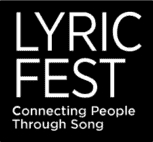 Q – Kevin, you recorded Dave Brubeck’s The Gates of Justice with Brubeck himself. We will be including the powerful movement “Lord, Lord, what will tomorrow bring?” on Lyric Fest’s Journey Toward Freedom concert this weekend. Can you tell us something about the experience of meeting and working with the late, great Dave Brubeck?
Q – Kevin, you recorded Dave Brubeck’s The Gates of Justice with Brubeck himself. We will be including the powerful movement “Lord, Lord, what will tomorrow bring?” on Lyric Fest’s Journey Toward Freedom concert this weekend. Can you tell us something about the experience of meeting and working with the late, great Dave Brubeck?
A – I first worked with Dave in 1987. At the time I was a free lance singer in New York when I heard that He was looking for an African American baritone to sing a performance at Union Theological Seminary. I was aware of his popularity because of the success of what was arguably the 1st Jazz cross over tune to hit the pop charts, “Take Five”.
When my Dad (an Army Drill Sergeant) was stationed in Alaska at the height of the cold war (we could see Russia from our front porch…), one of his favorite radio programs used Take Five as it’s theme, so we would hear it every week. We loved it.
I was thrilled to meet and collaborate with the great Jazz legend when the opportunity arrived. I was immediately struck by his brilliance and sincerity, without even a hint of conceit or self importance. Quite unassuming with a very generous disposition. Thus began a 20 year long collaboration with me performing his compositions, most of which were not color specific.
When my father underwent multi bypass surgery, I called Dave to let him know (he, having undergone a similar procedure the year before) and within half an hour Dave called my Dad and wished him well. Instant generosity.
Q – Brubeck wrote The Gates of Justice at the height of the Civil Rights Movement. Did he share any insights about his aspirations for this music and why he wrote it?
A – McHenry Boatwright premiered the work. Dave’s intent for what the work stood for required little clarification, only that it should be performed from the heart. While he cared deeply about rhythmic accuracy and well produced tone, it was mostly about the narrative. He pulled no punches, it was certainly the 1st time I used the “N” word in concert. It wouldn’t be the last, some 5 years later I sang it in Anthony Davis’ opera “X: the life and Times of Malcolm X”.
Though I never asked him specifically how it was that he felt inspired to write the work, I might conjecture that as a white Jazz musician (a minority and not always recognized by that culture) he may have felt a need to bring focus to intolerance. He knew that Jews, due to there own sometimes painful experience in America, had much in common with the displacement and disenfranchisement of the American Negro. Jews marched with Negroes in the 60’s. He may have felt a need to document this commonality of cause against injustice. He would later feel compelled to compose works with Hispanic and Native American themes.
Q – After graduating from Julliard you have gone on to have an impressive international career that spans both concert work and opera from the European masters, and fabulous success also singing works of Gershwin, Brubeck and Menotti. Can you describe any differences of approach or feeling?
A – I was blessed to have grown up in the melted pot of military culture. Ecumenical services at Army chapels would have a variety of sacred music, a Gospel Choir, an Adult Choir (usually more classical) and Folk. I was also fortunate to have had parents who loved to listen to and perform a wide range of musical genres. Though mostly sacred, they would sing music from Handel to tunes by Mahalia Jackson. My Dad, as a kind of therapy, recorded hundreds of classical performances (including operatic) on reel to reel during his tours of duty in Vietnam. He would ship 100s of these tapes back to America to await his return. I listened to many of these tapes. I also loved the Beetles, Supremes and Hendrix. As my voice matured it seemed best suited to classical singing.
Q – Where were you born and raised and how did you discover you had a voice?
A – After having been born in Arkansas, my Dad was stationed in California, Alaska, Maine and finally in New Jersey (Ft. Dix). It was at Ft. Dix that I began to fully embrace my love of singing. The Main chapel had excellent choir directors and they sent us to a music camp whose director was Abraham Kaplan. Kaplan was the the principal choral preparer for Leonard Bernstein and the head of the choral department at Juilliard. I was so impressed with this fiery Israeli that I chose Juilliard for undergraduate study.
